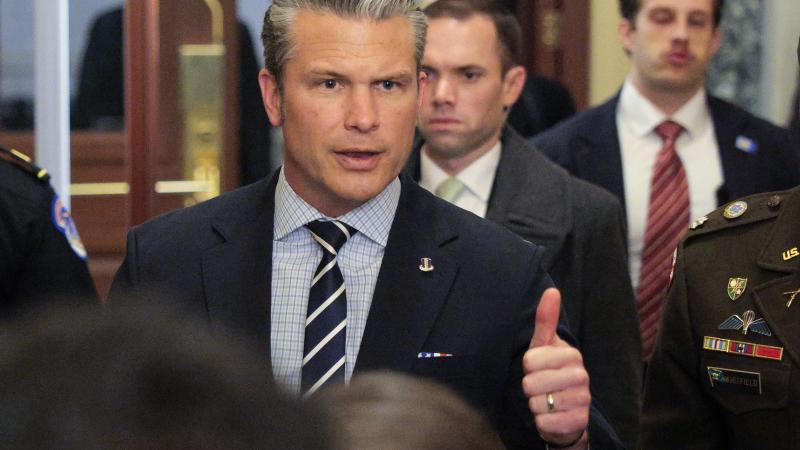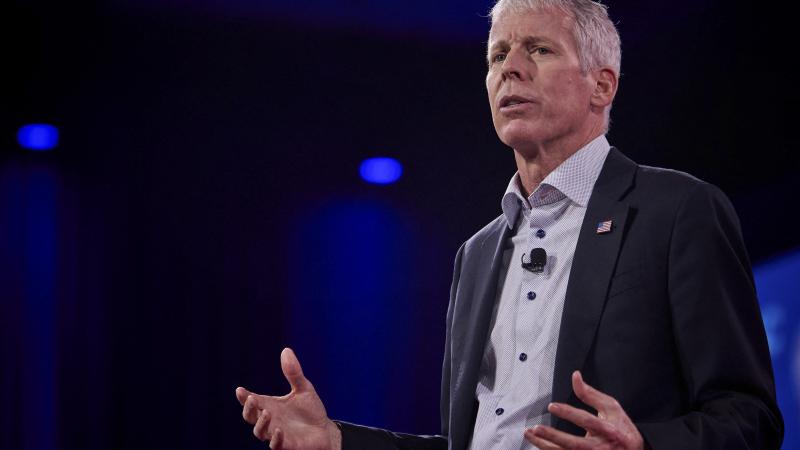Washington bill would let shelters not report some runaway youths to parents
No crime has to be committed or suspected against the child by the parents for the shelter or host home to decline contacting the parents. There is also no provision stating the parents need to be contacted or notified after a certain amount of time has passed.
A Senate bill on the cusp of a House floor vote would allow homeless youth shelters to avoid notifying parents of runaway children if the juvenile is seeking "gender affirming treatment" or "reproductive health services."
Senate Bill 5599 sponsored by Sen. Marko Liias, D-Mukilteo, would also allow “host homes” to keep runaway children from their parents or legal guardians for the purpose of helping them access "gender affirmation" surgery or medical procedures. The bill cleared the Senate in a 27-19 vote on March 1.
The bill has continued to advance through the legislature despite strong public testimony in opposition to the proposal, arguing that it undermines parental rights and could have permanent, irreversible effects on children’s bodies.
Under existing law, whenever a juvenile enters a licensed youth shelter the organization must determine whether the parents are aware of their child’s location and notify law enforcement or the Department of Children, Youth, and Families, or DCYF, if the youth is 12 years old or younger.
The shelter must also notify the parents within 24-72 hours if the youth does not have permission to be there. However, shelters can decline to notify parents under “compelling reasons” that include risk of abuse or neglect if the parents are notified.
SB 5599 alters this policy by adding an additional “compelling reason” for not notifying the parents to include if the child is seeking “gender affirming treatment" and “reproductive health care services," such as abortions.
The bill sets aside $7.5 million this biennium for Office of Homeless Youth Prevention and Protection Programs grants to organizations "to address the needs of youth and young adults seeking protected health services."
Under an existing state law, underage children can already receive "gender affirming treatment," which is defined as “a service or product that a health care provider prescribes to an individual to support and affirm the individual's gender identity that includes, but is not limited to, treatment for gender dysphoria.”
Reproductive health care services are defined by state law, while gender affirming treatment includes but is not limited to the following procedures:
Breast augmentation, chemical peel, dermabrasion, facial feminization surgeries, face lift facial masculinization surgeries, forehead brow lift, genital modification, hair line modification, hair removal by electrolysis or laser, hysterectomy, lip enhancement, reduction thyroid chondroplasty (chondrolaryngoplasty or tracheal shave), rhinoplasty, skin resurfacing, liposuction, mastectomy, penile implant, and voice modification.
A chief contention among detractors is how the bill undermines parental rights and authority over the child without due process. Under SB 5599, the shelters and host homes would be able to keep the runaway child without notifying the parents, who potentially could have the child reported as missing to law enforcement.
No crime has to be committed or suspected against the child by the parents for the shelter or host home to decline contacting the parents. There is also no provision stating the parents need to be contacted or notified after a certain amount of time has passed.
Another source of opposition is the ramifications of surgeries and medical procedures on children who, potentially, have not yet experienced puberty. One amendment proposed on the Senate floor would have required that underage children receive counseling services prior to any medical procedures, but it was rejected. Another would have restricted “gender affirming care” to counseling services, but that amendment was also rejected.
Liias told colleagues on the Senate floor that the objective of the bill is for children to receive treatment or medical procedures, then potentially have the parents notified and brought back into the child's life through a DCYF-managed process.
"We need to focus on the essential needs of the young person, ensure they're getting the care they deserve, and then focus on the important [family] reunification process and the supports we have to accomplish that," he said.
For many supporters of the bill, keeping the child away from their parents and not notifying them of a medical procedure is justified if they are not “affirming” of the child’s claim to be the opposite sex or agree to medical procedures performed on the child. Many of the proponents argued that parents simply not agreeing with their children creates an “unsafe” home environment.
Prior to the March 1 Senate floor vote, Sen. Claire Wilson, D-Federal Way, said the bill is intended for children who’ve been “rejected or abandoned” by their parents, though the proposal does not require there be proof or suspicion of child abandonment, which is a Class C felony under state law.
During a March 22 public hearing in House Human Services, Youth, & Early Learning Committee, Rep. Jim Walsh, R-Aberdeen, asked Planned Parenthood Greater Northwest Educator Sara Kukkonen, who testified in favor of the bill, the difference between an “unsafe” home and “unsupportive” home.
Kukkonen replied that “unsafe can certainly imply violence, and I think that unsupportive can lead to abuse. Maybe not everyone would consider [it] unsafe, but unsupportive households can have a severe impact on someone’s mental health. I don’t always think they mean the same thing in every context - in this case they can lead to the same outcome.”
SB 5599 cleared Human Services, Youth, & Early Learning on March 24 and has been referred to the House Rules Committee.
















